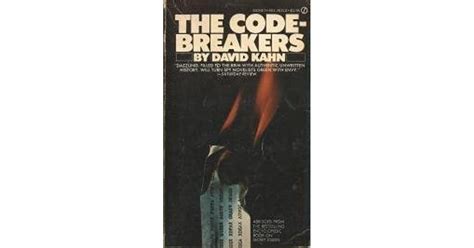The Code Breakers by David Kahn
ISBN: 0684831309 
Note: This review centers on the First Edition of the work as it was later re-released in 1996 with updated declassified material.
The Code-Breakers is a classical work in cryptography circles. The subject matter is fittingly dramatic: A group of code breakers in Britain must break the codes of the Axis powers or else face military casualties and possible defeat. The scope widens after some time in the work to include code breakers from elsewhere in the world.
When reading any specific work which is considered a classic in certain communities, one often wonders how much of the reputation of the work is based on reality. In every circle, there tends to be “that book”, that defines how deeply a person is a part of “the group”. The Code-Breakers is rare in that it actually has earned and retains its reputation whether you happen to know anything about cryptography or not. Part of the allure comes from the subject matter but mostly, one can simply state that it is a well-crafted book that includes details that were probably difficult to come by at the time the book was published. In other words, there are many pieces of data in the book that probably were classified and so the author had to find the right balance between items that could be discussed and lines of interest that could plausibly be disclosed without giving away too much detail that might still be somehow relevant in a modern setting.
Within the pages we find the stories of some of the leading code-breakers of the generation that defined WWII. From Von Neumann, to Alan Turing, many of the well-known big names are present along with some history concerning how the Japanese conducted themselves in cryptography matters and diplomatic relations that are not widely known.
Additionally, we find in these pages certain kinds of codes and how they were broken. We learn about many hobbyists from Edgar Allan Poe to James Joyce who employ various kinds of coding in their works. The basic principle of most of the cryptography in the book involves how to “hide something in plain sight” but also concerns generating the appropriate keys once something hidden in plain sight has been identified such than an intelligible message is the result.
The thesis is advanced throughout the book that the victory in WWII is directly attributable to having a robust decryption apparatus. In the cases of both Japan and Germany, there was a laxity present which allowed their codes to be broken and thereby exploited strategically by the breakers to change the tide of battle. Sometimes these breakthroughs come from the “older method” of code breaking which involves finding a scuttled enemy craft or vessel with the code book still within it. These kinds of finds allow one to begin to eliminate certain possibilities of meaning or outright break a cipher. Of course, within the parameters of war, there is a definitive time limit by which the information is no longer actionable intelligence.
There is also the rather confusing and conflicting practice of sending out “Falsely-encrypted” messages meant to mislead the adversary into thinking they have discovered valid codes with actual plans. Sometimes a false key is planted. Extreme measures up to and including using dead bodies with code books planted on them were employed and the book tells us how and why and what the considerations were concerning the use of such tactics whether one was on the deploying end of it or the receiving end.
The machinery of code breaking and the birth of computing and how it is used is also present within this book. It provides a unique insight as to how and why the computational model that formed became what it is today. In short, the faster a machine could chew through possible meanings, the faster the potential code was broken. This began the kind of permutation computational race that we still see although in a more attenuated form to this day.
Between the history of the book, and the informational content of codes and how they are breaking, The Code-Breakers makes for fascinating reading. Should this book come across your path, plunk down the money for it and do not look back. Just do not expect to have your weekend dedicated to anything other than reading. 